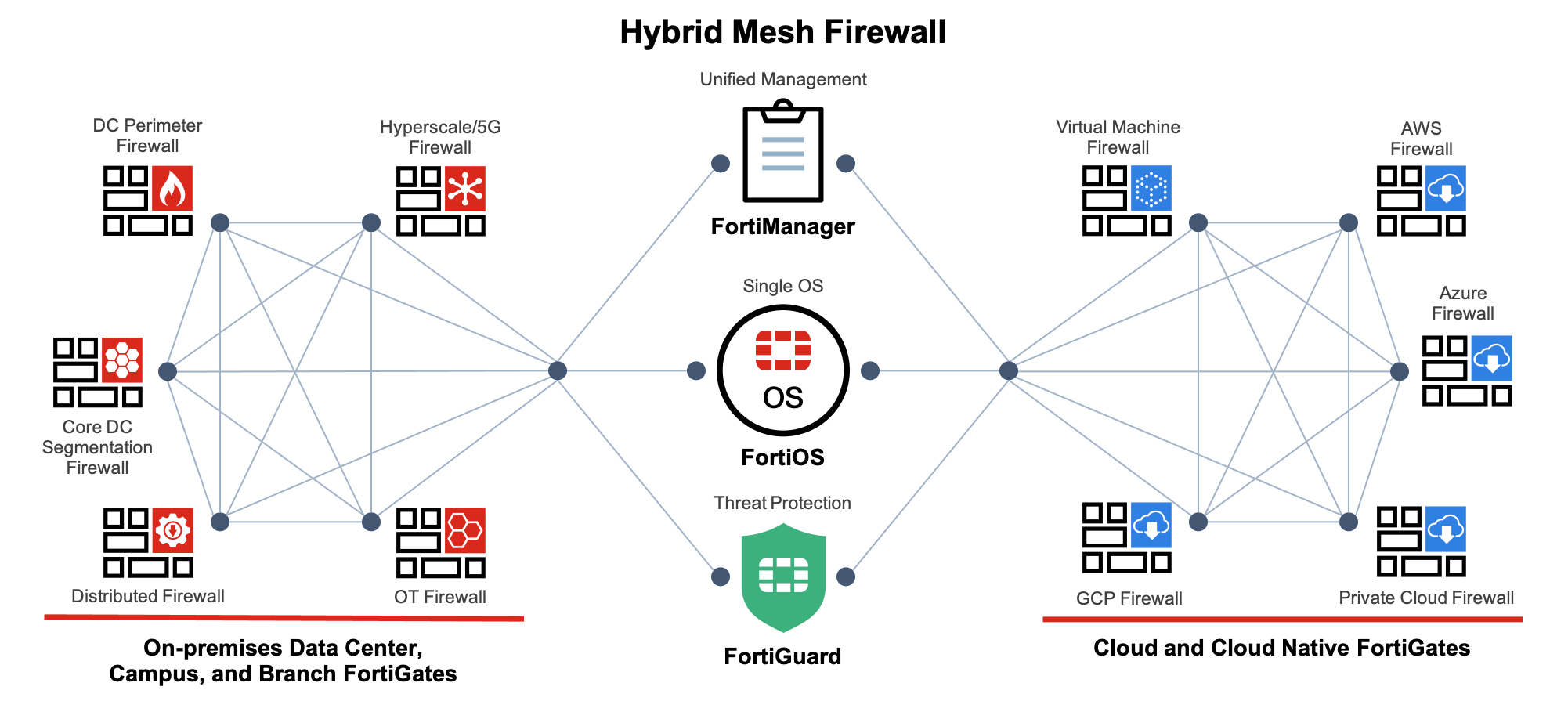
































What is a Hybrid Deployment Firewall?
A Hybrid Mesh Firewall is a security system that protects different parts of a company's IT infrastructure. It can be used with hardware devices, virtual devices, cloud-native firewalls, and firewall-as-a-service (FWaaS) to provide complete protection for enterprise branches, campuses, data centers, public and private clouds, and remote office users.
The most important and unique feature of a hybrid deployment firewall is its centralized management platform. This platform allows the firewall to protect all areas of the company's IT infrastructure, such as enterprise sites, public clouds, private clouds, and remote office users. It helps each area of the company's IT infrastructure automatically perform many security functions, saving time and avoiding duplication of work or policy reconstruction in the face of a shortage of cybersecurity skills.
Hybrid IT environments present unique security challenges and make enterprise management more complex. As different parts of a company's IT infrastructure become interconnected, businesses need simplified solutions to manage this complexity. According to Gartner, Hybrid Mesh Firewalls will be widely used, but choosing the right vendor for a company's needs can be difficult.
Managing IT Complexity
Currently, many firewall products on the market cannot support the hybrid deployment of firewall functions. This means that companies have to deploy multiple single-point security solutions to effectively protect their sites, cloud environments, and remote office users.
The Cybersecurity Skills Gap
In addition to complexity challenges, using multiple point products increases corporate risks. Deploying these products requires network security personnel to spend a lot of time learning new features and operational dashboards. With a global shortage of cybersecurity talent, businesses are at a greater risk.
The Rise of Advanced Threats
The need for a hybrid deployment of firewalls is not only driven by complexity and a shortage of cybersecurity skills but also by the increasing number of advanced cyber threats. These threats pose a greater risk to businesses, targeting the web, applications, content, and devices. Therefore, it is urgent to establish coordinated security across different parts of a company's IT infrastructure.
The Benefits of a Hybrid Firewall Deployment
A hybrid deployment firewall offers several benefits to enterprise IT, including:
- Improved operational efficiency
- Simplified network security operations
- Reduced organizational risk
- Mitigation of the cybersecurity skills gap
- Resilient protection against known and unknown cyber threats
- Full automation and collaboration with AI/ML
- Lower total cost of ownership (TCO)
Fortinet can help organizations that need to deploy a hybrid deployment firewall to protect their data centers, campuses, branch offices, clouds, and remote office users. They provide a comprehensive firewall solution for hybrid deployments, including various types of firewalls that can be managed centrally through FortiManager. They also offer cloud-native firewalls, virtual firewalls, and Firewall as a Service (FWaaS). Additionally, Fortinet provides industry-leading threat intelligence to enhance security. All these components can be coordinated and linked through the FortiOS operating system to maximize protection and leverage existing IT investments.
Upgrade your network security now to ensure the security and efficiency of your enterprise data! Visit the Hi-Network website to explore and purchase Fortinet'sadvanced network security products. Don't miss this opportunity! Contact us now via Live Chat or info@hi-network.com. Enjoy up to 5% off on new factory-sealed Fortinet products!
Check More Fortinet Products:
 Hot Tags :
network
Firewalls
Fortinet
Hot Tags :
network
Firewalls
Fortinet